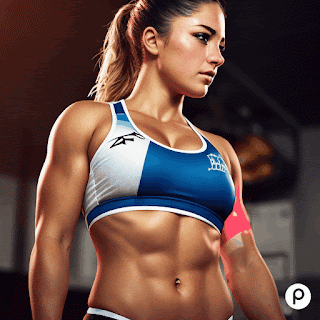Essential Nutrition for Female Athletes

Why Nutrition Matters for Female Athletes
Female athletes require proper nutrition to fuel their workouts, support their bodies, and aid in recovery. A well-balanced diet, including the necessary supplements, proteins, and other foods, can help female athletes achieve their performance goals, promote overall health and wellness, and prevent injury.
Key Nutrients for Female Athletes
Carbohydrates and Fiber
Carbohydrates are the body's primary source of energy, while fiber promotes digestive health, aids in satiety, and helps keep the body feeling full. Examples of carbohydrate-rich foods include whole grains, fruits, vegetables, and legumes. Fiber-rich foods also include whole grains, nuts, seeds, and vegetables.
Protein
Protein helps repair and build muscle tissue, crucial for recovery after workouts. Sources include lean meats, fish, poultry, dairy, eggs, legumes, nuts, and seeds. Protein supplements like whey protein or plant-based options can also be beneficial.
Healthy Fats
Healthy fats support energy needs, hormone production, and nutrient absorption. Examples include nuts, seeds, avocados, fatty fish, olive oil, and coconut oil. Healthy fats help with satiety and overall health.
Micronutrients and Antioxidants
Micronutrients like iron, calcium, and vitamins are vital for metabolism and immune function. Antioxidants such as vitamin C, vitamin E, and beta-carotene help reduce inflammation and oxidative stress.
Hydration
Proper hydration is essential for regulating body temperature, nutrient transport, and waste removal. Female athletes should aim for 8-10 cups of water daily, and more during exercise. Hydrating foods like fruits and vegetables also help.
Meal Planning
Effective meal planning ensures a well-balanced diet. Include a mix of protein, carbohydrates, healthy fats, and supplements as needed. Pay attention to your body’s needs and adjust accordingly.

No comments:
Post a Comment